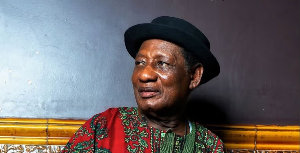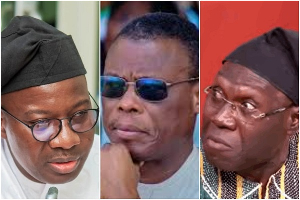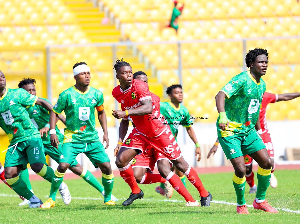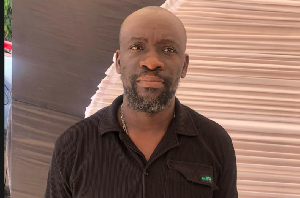By Osumanu Al-Hassan
In every community today, the one dominant question people ask is whether the mode by which Muslims choose to celebrate the Eid-ul-Fitr (Sallah) is what Islam prescribes for observing such a blessed occasion.
This question, however, does not emanate only from non-Muslims, but also from majority of concerned Muslim individuals, simply because of the worrying development of how some perceive and show their joy on this day.
Â
Not only do we cause nuisance with blockades that we put on streets, we also engage in activities that are totally contrary to all Islamic norms and values. It's perfectly true that as Muslims we have to show our joy for completing the 30 days of fast, but isn't that supposed to be done according to our Islamic culture?
Unfortunately, as Muslims we appear to be unsatisfied with the way Eid is celebrated; the prayer grounds, the sermons, the handshakes and the bridge-building visits to neighbours and relatives, which form integral part of the celebrations.
Today, Muslims have allowed aspects of foreign cultures to take over the whole idea of Eid, making it difficult to distinguish Sallah from other occasions like Halloween or Mardi Gras.
According to Islamic narrations, the early morning of the day after Ramadan comes to an end (first day of Shawwal) is termed 'The day of recompense†and angles descend to every part of the earth. These angels then say in very melodious tones, 'O followers of Mohammed (pbuh), come out in your adornment to meet The Generous Lord. He is rewarding you for all the deeds done during the holy month and also forgiving the sins of His servants.'
This is the day of 'Eid-ul-Fitr' during which all believing Muslims are expected to go to prayer grounds for prayers. Muslims are not expected to start this day dressed in costumes, drumming, dancing and revving up engines of motorbikes and cars that have had their exhaust pipes deliberately removed to generate lot of noise.
While believers are preparing to go to the mosques and prayer grounds, others choose to prepare drums, costumes and other accoutrements and then sit to wait for prayers to end so they can take over the streets. Such people do not even see the importance of joining the congregational prayers.
It is said that the Holy Prophet narrated that when all believing Muslims have finally come outside their homes for the occasion, Allah shall ask the angels, 'What is the reward of a worker who has accomplished his duties?' The angels shall say 'Our Lord and Leader, his payment is to give him the due reward.' Allah shall then say 'I testify to you my angels that I am combining for them, their rewards of deeds in the month of Ramadan and their night prayers have won my trust and my forgiveness.'
Allah shall say 'O my servants. Demand anything from Me. For by My Might and Majesty, you will not demand anything concerning your religion and your worldly things unless I reward you for the invocation.
This 'day of recompense' is the day Allah says He will reward all believers for their deeds during the Ramadan and the night we spent praying and asking for His trust and forgiveness. How do Muslims expect forgiveness and reward when we choose this very day to mock all the good deeds we did during the Ramadan?
The Imam of the Nyamekye Central Mosque, Mallam Mucktar adequately summed up this in his sermon when he noted that any Muslim who engages in improper activities on this day can be equated with a person who, after taking a shower and putting on his best adornments goes out to amuse himself in a puddle. People are so keen to run into the streets that when they go to the prayer grounds they forget to ask Allah for his blessings.
Â
Isn’t it a little extreme when we practically turn the whole celebration into a street carnival, where we perpetrate activities that Islam, the religion we are commemorating frowns on?
Â
The Prophet has instructed Muslims to put on their best clothes on this day. Unfortunately, some choose to dress like mad people and walk like drunkards with all kinds of items including bells tied to their torn outfits. Some years back, the spectacle we witness on the streets on Eid was completely unknown. What many still remember were Chiefs of the various communities riding on horsebacks with processions behind them. And this was done in an orderly fashion, without the Halloween taste that has been introduced into the celebration today.
Â
Those beautiful processions have today become children and adults, males and females alike hanging dangerously on speeding vehicles, without thinking of the dangers they are exposing themselves to. Like marauding army on a mission, the crowds take over the streets, putting up blockades and causing huge traffic jams.
Â
And woe onto any driver whose vehicle enters into the barricaded area of the street, because by the time it goes through the car will be badly dented. Boys and girls are seen hanging dangerously on various parts of vehicles, from the boot to the bonnet. No one wishes to be seen sitting on a seat, the more dangerous the posture, the more appealing it is.
Â
Fellow Muslims, life is too precious to waste in this manner, on a day we are supposed to be glorifying Allah for his bounty. Didn’t the 30 days of fast teach us anything? Endangering precious lives and causing the worst of nuisance are now side attractions on the day of Eid-ul-Fitr. Another showcase for the day is the pack of motorcycle riders who speed along the streets, with cheering crowds racing along. The machines they ride are huge, very huge and just imagine when one goes crashing into the crowd of running children, which often happens.
Â
Besides the dangerous way they ride, the exhaust pipes are deliberately removed to generate the worse of noise one could ever imagine, which could be heard miles away.
For lack of space, I cannot mention examples of injuries that people have sustained when recklessness on the streets caused accidents. I am however sure we have all heard of some.
Â
This unacceptable way of celebrating the Eid has often caused frictions between law enforcement agents and the youth of some communities. One example was what happened at Darkuman a year or two ago, when a contingent of police officers was dispatched to enforce law and order by preventing the youths from blocking the main Darkuman-Nyamekye road.
Â
What happened there was ugly. The youth vented their anger not only on the police but also on innocent people and attacked bystanders, shopkeepers and destroyed vehicles. In retaliation to this action, the police descended on the community and arrested many people, including innocent visitors who were visiting relatives at Darkuman.
Â
In cases like these, the only ones to blame would be ourselves because if we follow what the Holy Prophet taught, nobody will have cause to accuse Muslims of anything. The way we observe the Eid is not Islamic and Muslim leaders should come out to condemn it.
Prophet Mohammed (pbuh) said, “When revolt is ‘asleep’. Allah has cursed any person who wakes it.â€
Â
Is that not what we do on the streets when we commemorate ‘Halloween’, which we erroneously attempt to tag as Eid-ul-fitr?
Opinions of Wednesday, 23 September 2009
Columnist: Al-Hassan, Osumanu
Sallah is no street Carnival
Entertainment













